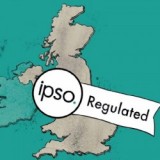 The press watchdog has rapped a regional daily after it failed to verify a “very serious and sensitive” claim about a woman’s mental health.
The press watchdog has rapped a regional daily after it failed to verify a “very serious and sensitive” claim about a woman’s mental health.
The Independent Press Standards Organisation has upheld a complaint against the Yorkshire Evening Post over a story it published which reported a claim that the woman in question had been diagnosed with schizophrenia.
While she was not named in the story, IPSO found the woman would be identifiable as the subject of the allegation in the YEP’s coverage and that this constituted an intrusion into her private life.
The piece in question was an interview with a beauty business owner who had recently taken legal action against the Mail on Sunday after the newspaper carried out an undercover investigation, and subsequently published a critical article, following a complaint by a customer about a treatment.
In the interview with the YEP, the business owner said she was unable to take any action against the customer who approached the Mail on Sunday because she had been diagnosed with schizophrenia.
The woman who complained to IPSO over the Leeds-based daily’s story was the customer in question, and she claimed the YEP had breached Clause 1 (Accuracy), Clause 2 (Privacy), and Clause 3 (Harassment) of the Editors’ Code of Practice in its coverage.
The customer, who was unnamed by IPSO in its ruling, denied she had ever been diagnosed with schizophrenia and said she had not made the claim to anyone.
She claimed the YEP had intruded into her privacy by reporting the allegation and said that although she was not named in the story, she had been identified as the subject of the claim by readers who had contacted her and her family, causing great distress and exacerbating the intrusion into her privacy.
The customer said she had been identified because the business owner’s story was well known in her local community and she was well known to be the person who had complained about her treatment on social media, adding the business owner had posted pictures of her online which had been widely shared.
Photographs of her face had been published in the Mail and therefore she believed people who had seen the original story may be able to identify her, adding it was her complaint alone which led to the undercover investigation and the Mail’s story, and it was therefore not the case that the business owner could have been referring to a different person in the YEP’s piece.
The YEP denied a breach of Code and said the story was a report of the interview with the business owner, a reliable source of information, which was published in good faith.
It said that it did not carry out any fact-checking of the business owner’s claims, or contact the customer for comment, because it considered this would have been inappropriate given the claim made regarding her mental health.
The YEP offered to amend the reference to the customer being diagnosed with schizophrenia to state that this is what it had been told by the business owner, and that this was what she had been led to believe.
It said these were the business owner’s honestly held views, which it was entitled to report and it was necessary to do so in order to convey the circumstances in which she had been successful in her legal action against the Mail.
The YEP further denied the story represented an intrusion into the customer’s privacy because it did not accept that she was identifiable.
It said its reporter was unaware of the identity of the person referred to by the business owner during the interview and it was impossible for any member of the public to have identified the customer because the information about her in the story was limited.
The YEP added the only information which could identify her was that she was a customer of the business owner, and that she had been diagnosed with schizophrenia.
It said that as it was in fact not the case that the woman had been diagnosed with schizophrenia, the pool of possible persons that the woman was referring to would include any of her former customers, which was a large pool.
As a gesture of goodwill, the YEP offered to provide the customer with a confidential letter expressing regret that the story caused her distress and also offered to let the customer put her version of events forward in writing for its reference, should it ever need to return to the subject.
IPSO concluded the customer would be identifiable as the subject of the schizophrenia claim to an audience who were aware of the dispute.
It did not consider that presenting the interviewee’s position on a row relating to the provision of a beauty treatment constituted adequate justification for including allegations – which were disputed – about the customer’s mental ill-health without her consent.
IPSO noted the claim was presented in a quote attributed to the interviewee, but found it was clear that the newspaper should have taken steps to verify this allegation such a serious and sensitive claim about a person’s health where it was possible for the customer to be identified.
The Committee ordered the YEP to publish the full adjudication, which can be read here, on its website.

 Follow HTFP on Twitter
Follow HTFP on Twitter